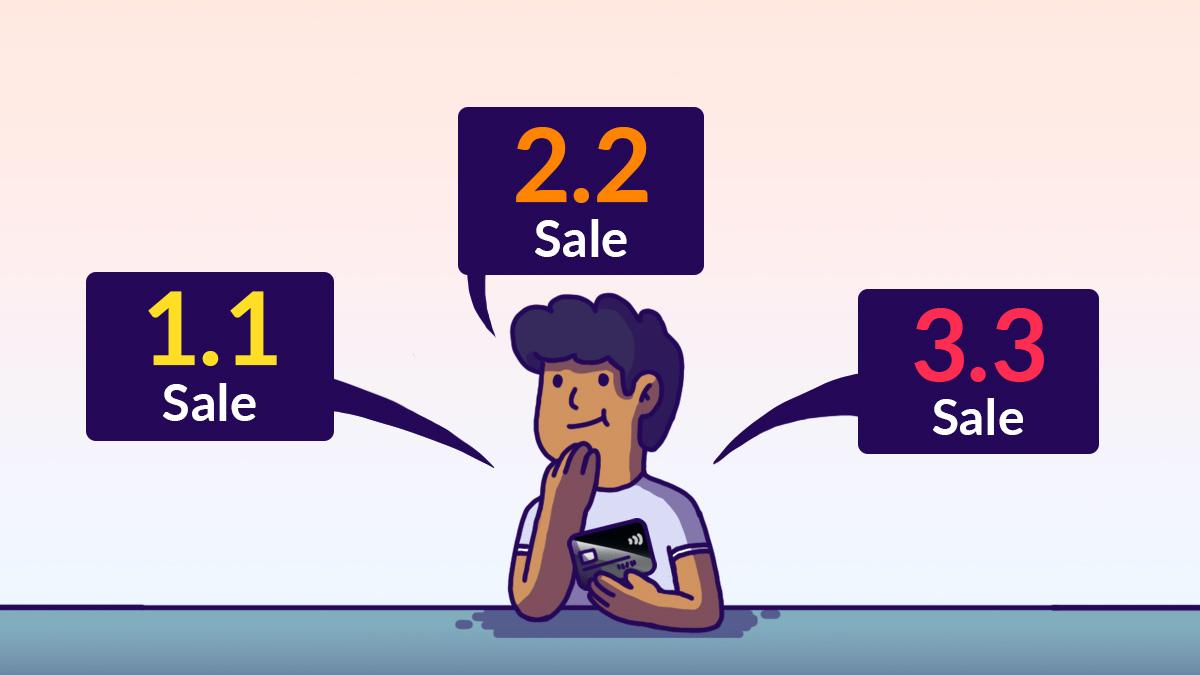This article is sponsored by DBS
A lot has changed in the past year for us – we’re working from home a lot more, we’re commuting a lot less, and, for the time being, we won’t be seeing a lot of overseas travel.Which means you’ll probably miss the shopping experience that comes with traveling. So maybe it’s time to say goodbye to your fancy souvenirs and gifts – though hang on, online shopping can always circumvent that problem!Except for the fact that, you know, we have to deal with foreign exchange and transaction fees.
Not Really (Fee)ling It
So, that means we’re paying more money when we buy from foreign merchants and websites online. But how much more, exactly?
When we shop online, especially with foreign merchants and websites, we’ll encounter two types of foreign exchange (FX) fees: foreign transaction fees and currency conversion fees. In Singapore, FX fees hover around 3% to 3.25%.
Oh, and don’t be fooled: foreign transactions aren’t
just transactions that are charged in USD or other foreign currencies. It might just be a transaction charged in local currency (SGD) too. As long as the transaction goes through a
foreign bank, it might be pegged as a foreign transaction all the same.
With that out of the way, here are some quick explanations for each fee type.
Foreign Transaction Fee
This fee is incurred when a purchase is charged in a currency that
isn’t SGD. The 3.25% mentioned earlier will also include administrative fees as well as fees from your bank and card issuer (Visa, MasterCard).
If you buy a Japan-exclusive Nintendo Switch, for example, and it’s priced at USD $600, you’ll actually be paying USD $619.50. That’s almost $20 above what the retail price is. Whether or not that cost is worth bearing is up to you, of course.
Currency Conversion Fee
Alternatively, you can make an overseas purchase and have it charged in SGD instead of a foreign currency. This conversion also comes at a cost – the currency conversion fee, which typically hovers around 2.8%.
However, this is where something called Dynamic Currency Conversion (DCC) kicks in as well. In a nutshell, DCC is the process where the merchant gets to dictate the exchange rate, which opens up the opportunity for them to pick a rate that nets them a higher profit (and thus, making you spend more than you bargained for).
Transacting in the foreign currency ensures that your card issuer (not the merchant) handles the exchange rate and protects you from having to fork out more money than you have to.
Why Should It Matter If I’m Not Spending Thousands?
You might be thinking, “I’m not going to spend a fortune every month on foreign purchases anyway – why should I worry?”
You’d be right. But you might also be barring yourself from earning cashback on your spending. For example, there are a number of cards in the market that offer cashback rewards whenever you spend a certain amount of money. Usually, these cashback rates are pegged at around 2%.
Incurring foreign transaction fees means you’ll be forking out 3.25% more on top of the original price of whatever it is you’re paying for. That easily negates the 2% reward you’re anticipating, rendering the reward function of your card virtually useless.
It’s important to note that the additional FX fees you’re dealing with won’t be counted towards total spending for getting rewards on your cards, making them deadweight. In the end, all you’re doing is spending money and not getting anything in return. Boo!
That’s why cards like the DBS Visa Debit Card exist – it offers 2% cashback on foreign currency spend (so you can still go ham on your online shopping) but saves you from having to bear any sort of foreign transaction fee. (Yes, debit cashback cards exist!) That way you won’t undercut your cashback.
A card like this might be great for those terrified of their own trigger-happy tendencies. After all, debit cards will work in your favour and help you control your spending, in addition to enjoying those hard-earned (hard-spent?) rewards.
A win-win situation, in our opinion!
Content sponsored by DBS.
About the sponsor: DBS is a multinational banking and financial services corporation based in Singapore. For more information about the DBS Visa Debit Card, click here. 










